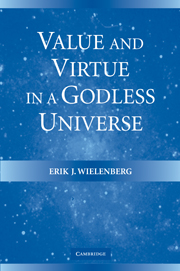1 - God and the Meaning of Life
Published online by Cambridge University Press: 05 June 2012
Summary
THE MEANINGS OF LIFE
It is often maintained that if God does not exist then human life is meaningless. There are a number of ways one might interpret this claim, depending on how one understands what it is for a human life to have meaning. Under one interpretation, for a human life to have meaning is for it to have a purpose that is assigned by a supernatural being. When a life has meaning in this sense we can say that it has supernatural meaning. Socrates apparently believed that his life had supernatural meaning, and he speculated about what the purpose of his life might be during his famous trial:
[I]f you put me to death, you will not easily find another who … clings to the state as a sort of gadfly to a horse that is well-bred and sluggish because of its size, so that it needs to be aroused. It seems to me that the god has attached me like that to the state, for I am constantly alighting upon you at every point to arouse, persuade, and reproach each of you all day long.
According to the Christian tradition, the life of Jesus had supernatural meaning: Among its purposes was to atone for the sins of humanity. Indeed, according to some versions of Christianity, every human life shares a common purpose: to glorify God and enjoy Him forever.
Under another interpretation, for a human life to have meaning is for it to bring goodness into the universe.
- Type
- Chapter
- Information
- Value and Virtue in a Godless Universe , pp. 14 - 37Publisher: Cambridge University PressPrint publication year: 2005



